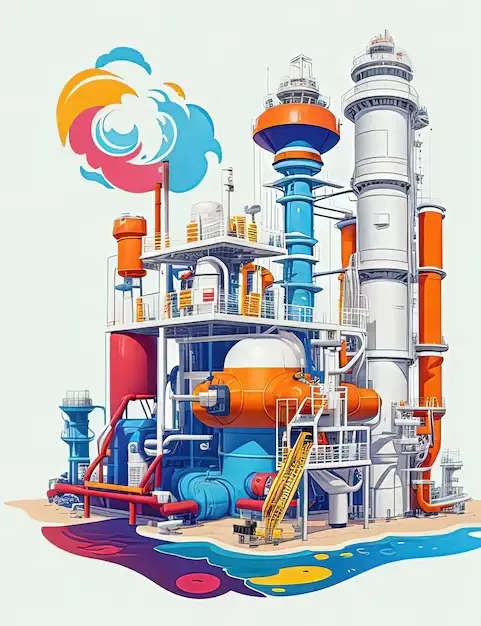The LNG supply chain involves gas production, liquefaction, transportation, regasification, and distribution. Key challenges include high production and storage costs, complex logistics, and fluctuating shipping expenses. Effective planning and optimization in demand, supply, capacity, cargo, and material balancing are essential for efficient operations and minimizing costs throughout the supply chain.
The LNG supply chain involves gas production, liquefaction, transportation, regasification, and distribution. Key challenges include high production and storage costs, complex logistics, and fluctuating shipping expenses. Effective planning and optimization in demand, supply, capacity, cargo, and material balancing are essential for efficient operations and minimizing costs throughout the supply chain.


Amid the environmental concerns, LNG stands under the spotlight with its relatively lower carbon emissions. While it still releases greenhouse gases, it can be emitted using carbon capture and storage (CCS) solutions. Moreover, ongoing research and development focus on reducing methane leakage across the supply chain to ensure safe and environmentally friendly transport.
Growing demand indicates a positive outlook for the LNG market in the future. Countries are now becoming more focused on meeting their emission reduction targets. Emerging applications like LNG bunkering for marine vessels, and its usage as a feedstock in the petrochemical industry have paved the way for opportunities for potential market expansion and diversification.
And with advanced software solutions, the industry is bound to grow further.
End-to-End LNG Supply Chain Planning and Scheduling
We deliver integrated planning models for demand, supply, capacity, and distribution, ensuring seamless coordination and optimization across the entire LNG supply chain.
Scenario Analysis
Our tools enable scenario analysis to predict disruptions, optimize resources, and improve decision-making using dynamic forecasting and predictive insights for supply-demand alignment.
Nomination and Allocation Management
We implement systems with advanced algorithms to manage LNG nominations, ensuring accurate allocation of gas to customers and maintaining balance in the supply chain.


Material & Energy Balancing
We offer mass balance and reconciliation systems to track performance, align operations with actual results, and enhance overall supply chain accuracy and efficiency.

Process Simulation for LNG Plants
We develop steady-state and dynamic models to optimize LNG plant design, performance, and safety. Dynamic simulations also train operators to handle complex processes effectively.
